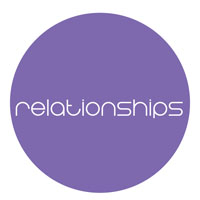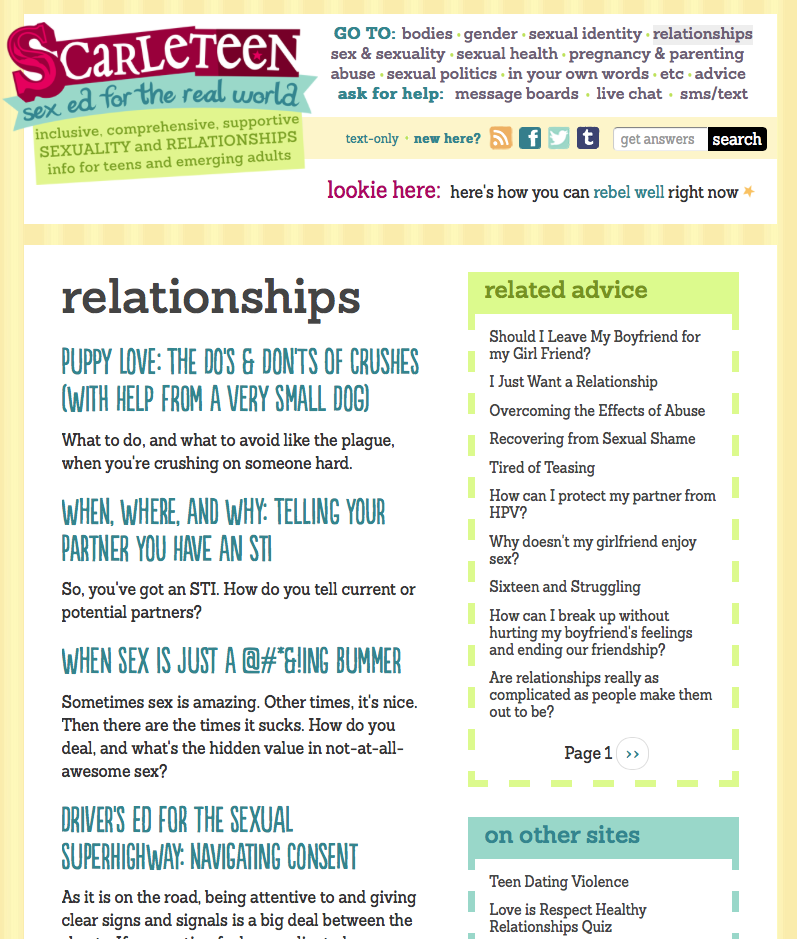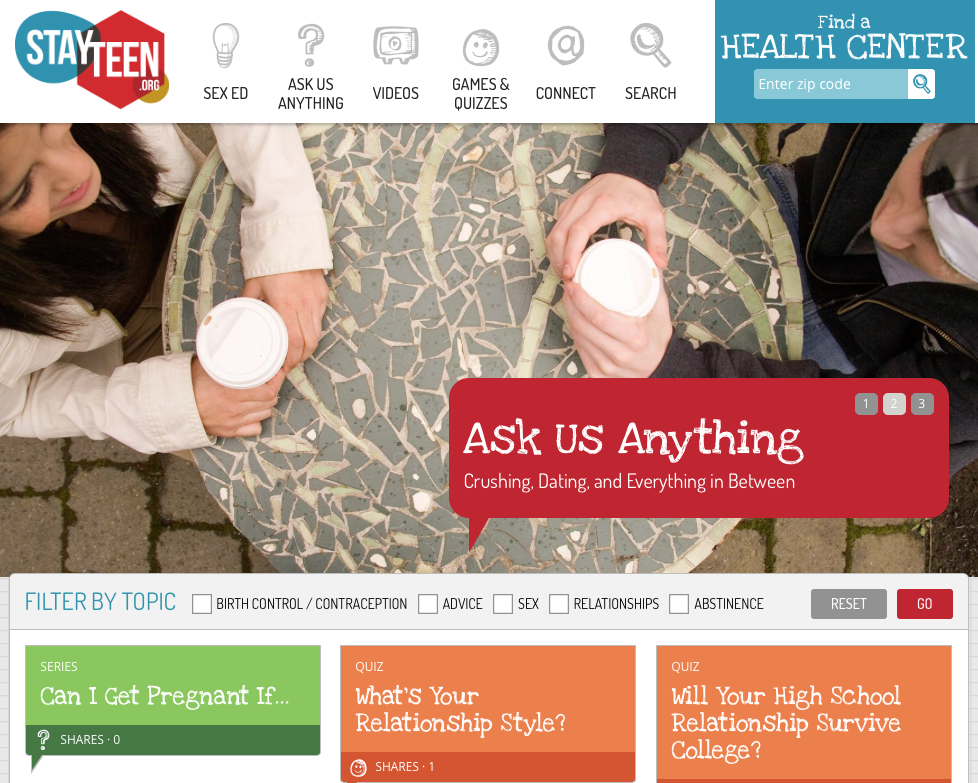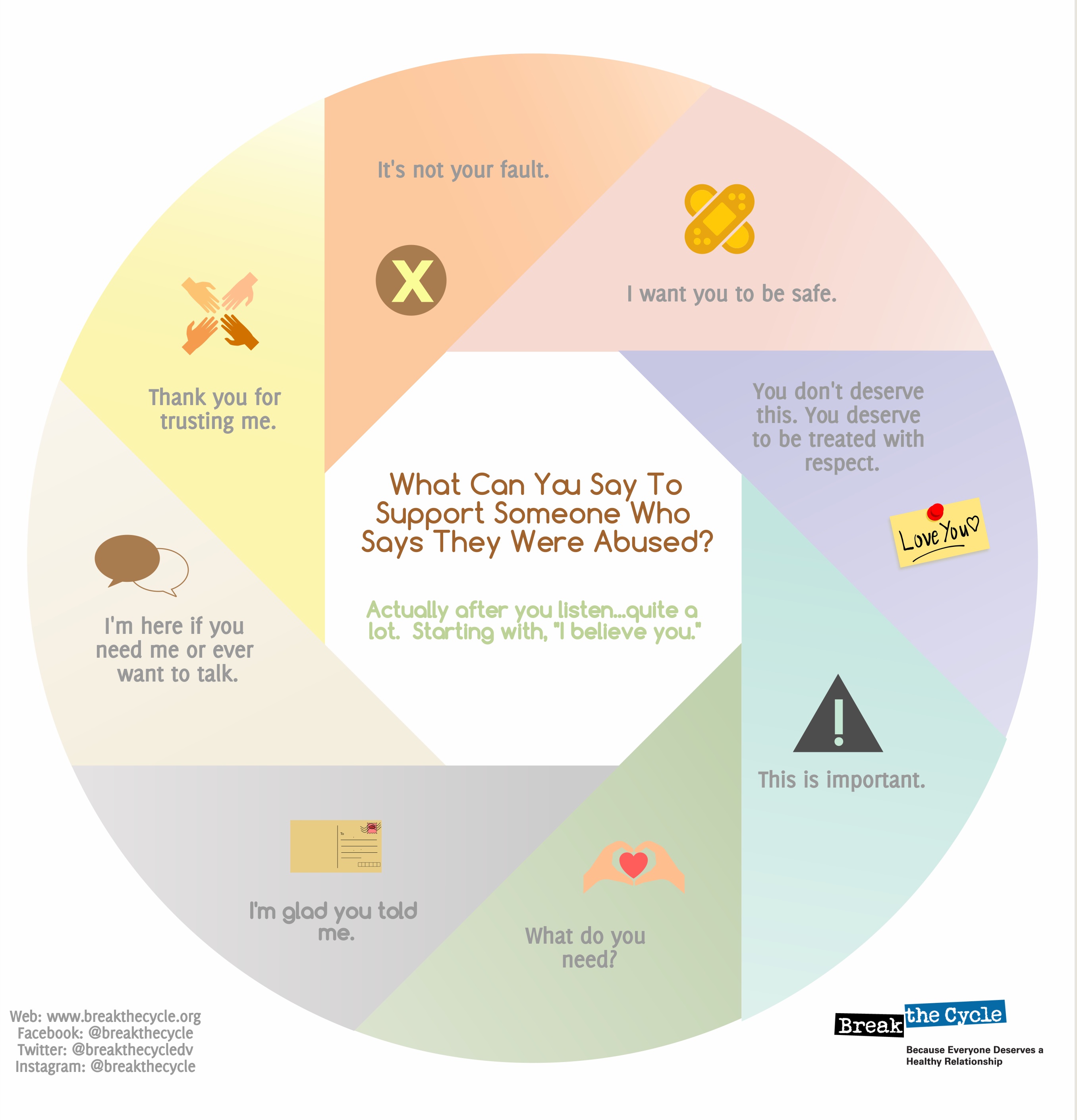

Bettering Your Relationships
Improving Romantic Relationships
Communicating Respect
Expanding Your Social Circle
Connecting with Trusted Adults
Improving Romantic Relationships
Love Is Respect
Excerpted from Healthy Relationships @LoveIsRespect.org
The following tips can help you and your partner create and maintain a healthy relationship:
- Speak Up. In a healthy relationship, if something is bothering you, it’s best to talk about it instead of holding it in.
- Respect Each Other. Your partner’s wishes and feelings have value, and so do yours. Let your significant other know you are making an effort to keep their ideas in mind. Mutual respect is essential in maintaining healthy relationships.
- Compromise. Disagreements are a natural part of healthy relationships, but it’s important that you find a way to compromise if you disagree on something. Try to solve conflicts in a fair and rational way.
- Be Supportive. Offer reassurance and encouragement to each other. Also, let your partner know when you need their support. Healthy relationships are about building each other up, not putting each other down.
- Respect Each Other’s Privacy. Just because you’re in a relationship, doesn’t mean you have to share everything and constantly be together. Healthy relationships require space.
Read more...
Take the Quizzes!
Is My Relationship Healthy?
Everyone deserves to be in a safe and healthy relationship. Do you know if your relationship is healthy? Answer yes or no to the following questions to find out. Make sure to check the boxes to record your responses. At the end, you’ll find out how to score your answers. PDF version.
Am I a Good Partner?
Are you a good partner? Answer yes or no to the following questions to find out. Make sure to check the boxes to record your responses. At the end, you’ll find out how to score your answers. PDF version.
The Relationship Spectrum
Where do your relationships fall on the spectrum from healthy-unhealthy-abusive? This video gives you an overview.
The Healthy to Abusive Relationship Spectrum
Click on the blue squares to get scenarios and see how you rank different behaviors on relationship spectrum.
Setting Boundaries with Intimate Partners
Setting Boundaries with Your Partner
Boundaries are all about respect. You and your partner should know what is too far in all aspects of your relationship — emotional, physical and digital — so that both of you feel safe.
Setting Healthy Online Boundaries
Is it ok for your boyfriend/girlfriend to tag you in photos online? Do you have to ask your partner if you can follow each other on Twitter? Is sharing your partner’s location ok? What are the rules for Facebook, Instagram, Twitter, Tumblr, Snapchat? What should your digital relationship look like?
Breaking Up Respectfully
Excerpted from How to Break Up Respectfully @TeensHealth.org
There are lots of different reasons why people break up. Growing apart is one. You might find that your interests, ideas, values, and feelings aren't as well matched as you thought they were. Changing your mind or your feelings about the other person is another. Perhaps you just don't enjoy being together. Maybe you argue or don't want the same thing. You might have developed feelings for someone else. Or maybe you've discovered you're just not interested in having a serious relationship right now. Topics in this article:
- Why is breaking up so hard to do?
- Avoid it? Or get it over with?
- Break-up do’s and don’ts
- What to say and how to say it
- Relationships help us learn
Read more…
Sexuality and Relationship Help
For inclusive, comprehensive, and supportive resources for teens and emerging adults, check out Scarleteen - for real world sex and relationship education.

Stay Teen - avoid the responsibilities that come with too-early pregnancy and parenting. “We're not telling you how to live your life...we just want to give you some food for thought and the latest facts. It’s up to you to make your own smart decisions.”

Recognizing Abuse
The following resources can help you recognize whether or not there is abuse in your relationship.
Dating Abuse Resources
BreakTheCycle.org
Break the Cycle is the leading national nonprofit organization providing comprehensive dating abuse programs exclusively to young people ages 12 to 24. From the classroom to the courtroom to the floor of Congress, Break The Cycle works every day to give young people, and those who care about them, the tools they need to live safer, healthier lives.

Let’s Be Real
Let’s Be Real is a movement for young people created by young people. Under 24 year olds lead the way to truly young people-informed violence prevention with real, unedited conversations about dating and hookups, friends and crushes, boundaries, and relationship goals.
Love Doesn’t Have to Hurt Teens
Excerpted from Love Doesn’t Have to Hurt Teens @APA.org
Knowing that love hurts doesn’t mean that you should expect to get hurt. If there’s no respect, it isn’t love. Learn the difference and how to turn it around in this pamphlet developed for teens by the American Psychological Association in consultation with the Partners in Program Planning in Adolescent Health.
Kevin is walking in the school hallway with his friends and sees his girlfriend at her locker with her friends. When he goes up to her, she gives him a cold look and says
Read more…
More Tools and Resources
Has An Abuser Changed?
Is your relationship really becoming abuse-free? Answer yes or no to the following questions to find out. Make sure to check the box to record your responses. At the end, you’ll find out how to score your answers. PDF version.
Power and Control Wheel
Healthy relationships are based on equality and respect while abusive ones are based on power and control. Learn how abusive partners use violence and other tactics to get what they want. You can click on a spoke of the wheel to learn more about one of the forms of abuse, including examples and red flags.
Drugs, Alcohol and Relationship Abuse
A lot of times people blame their bad behavior on something else, like drugs and alcohol. Drinking does affect abuse, but maybe not how you would think.
Obstacles to Help for LGBTQ Youth
Abuse in same-sex and opposite-sex relationships is not fundamentally different. It’s still about one partner using destructive behaviors to control the other. However, LGBTQ folks may face some specific types of abuse that are different than their straight peers.
Coercive Methods for Effecting Compliance
This handout will help you to recognize coercive behaviors and understand their purpose and effect. Psychologist Albert Biderman initially developed this framework in 1956 to understand methods used by foreign armies to extract false confessions from prisoners.
What the Cycle of Abuse Looks Like
This is a simple pictograph of the cycle of abuse and its recurring phases from tension to abuse to honeymoon and calm, then back to tension.
A Teen’s Guide to Safety Planning
If you are in a relationship that is hurting you, it is important for you to know that the abuse is not your fault. It is also important for you to start thinking of ways to keep yourself safe from the abuse, whether you decide to end the relationship or not. This guide will help you work through a three-page safety plan to help keep you safe at school, at home (or in your foster care environment) and other places that you go on a daily basis. Designed for teens in general.